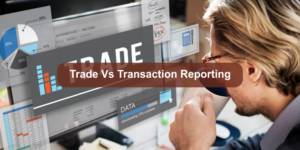
Blog
Blockchain Technology: A Way Ahead
What is Blockchain Technology?
Blockchain which is also known as Distributed Ledger Technology (DLT) makes the history of any digital asset unalterable and transparent through the use of decentralization and cryptographic hashing.
For simplicity consider the example of Google Docs, when it is created it can be shared with a number of people, and the document is distributed among the group of people instead of making copies or transferring it.
This decentralization makes it possible for the document to be accessed or edited at the same time while the changes are stored in real-time and there is complete transparency among the group of people. Of course, Blockchain is more complicated than Google Docs but the analogy is apt as it shows three major ideas of the technology:
- Digital assets are distributed and not copied or transferred.
- Full real-time access is possible as the asset is decentralized.
- A transparent ledger of changes preserves the integrity of the document, which creates trust in the asset.
Thus, Blockchain a time-stamped series of immutable records of data that is managed by a cluster of computers not owned by any single entity. Each of these blocks of data (i.e. block) is secured and is bonded to each other with the help of cryptographic principles (i.e. chain).
How Blockchain Technology Works?

Following steps are followed:
- A transaction request is initiated.
- The block that represents a transaction is created that consists of computers which is also known as nodes.
- The network of nodes uses known algorithms to validate the transactions and the user’s status.
- A verified transaction can consist of cryptocurrency, records, or any other information.
- The transaction is combined with other transactions which once verified creates a new block of data for the ledger.
- The newly updated block is added to the existing Blockchain.
- The transaction is completed.
Book your CFA Demo Session Click Here
The Blockchain technology can be categorized into two sections:
- Public Blockchain:
It is completely open-ended and anyone can participate in the transaction without seeking any permission.
- Private Blockchain:
It is completely close-ended and it requires an invitation to participate in the network. It restricts the entry of participants in the network and only allows the participants that are required in the network.
Application of Blockchain in Practical Life:

- Banking Use
By integrating Blockchain into banks, consumers can check the process of their transactions within 10 minutes which is usually the time taken to add the block to the Blockchain independent of the time, or the day on which the transaction has taken place. Banks can also exchange the funds in a more secure manner between the institutions. Capgemini, a French consultancy, estimates that consumers could save up to $16 billion in banking and insurance fees each year through Blockchain -based applications. Companies like J.P. Morgan, Barclays, Santander uses Blockchain for day to day banking services.
- Cryptocurrency
Blockchain is the base for cryptocurrency like Bitcoin. Blockchain lets Bitcoin and other cryptocurrencies to operate without the interference of central authority with the spread of its operations across a network of computers. This eliminates the transaction cost and also reduces the risk that is associated with the transaction.
- Healthcare
The study shows that healthcare experiences double the number of phishing emails as any other industry. Blockchain can be used so that the records and personal information of the patients cannot be altered. The personal data of the patients can be encrypted with the help of the private key. The distribution of data only with few people ensures that the cyber-criminal cannot access the data. Companies like Hashed Health, Philips Healthcare, Health Linkages use Blockchain to keep the record of data.
- Government
The report published by the Office of Management and Budget (OMB) claims that
- Out of 31,000 successful compromises in 2017, 38% never had their methods or attacker identified
- Only 27% of agencies have the ability to detect large data compromises
- 84% of all government agencies fail at meeting basic encryption goals
This statistic shows that there is a need for Blockchain in this entire system. With the help of Blockchain technology, the governments can quickly identify potential hackers and traces of the data that has been manipulated or altered.
- Defense and Military
Blockchain can be used to secure legitimate data for the defense and military contracts and the companies that store most of the sensitive data and information. These companies use the Blockchain decentralization method to ensure security and privacy. According to Accenture, around 86% of the defense companies are planning to integrate the data by the use of Blockchain technology.
Book your FRM Demo Session Click Here
Advantages of Blockchain Technology
- Instant Transactions
- Zero Interference of Government
- Impenetrable for frauds
- Improved financial efficiency
Disadvantages of Blockchain Technology
- Extreme Volatility
- Increased complexities for not so Tech-Savvy person
- Self-Maintenance
- High Energy Consumption
- The process can be slowed down if many users are using the same network
Blockchain Use Cases in Fintech
There are 8 major use cases of Blockchain in the Fintech sector
|
Use Case |
Example |
| Significantly reduce risk and prevent fraud
|
Everledger, IBM Blockchain, Auxesis, VeChain |
| Digital Identification (KYC, AML, CDD)
|
BankChain, SecureKey, ShoCard, Microsoft, GetXS, Selfkey |
| Smart Contracts for automatic contract enforcement.
|
Ethereum, NEO, Rchain, attores, Sofocle Technologies, Agrello |
| Simplifying Cross border payments using faster clearing & settlements | Ripplenet, Mastercard, Clear, Stellar, IBM, R3 Corda, SWIFT, Primechain-P5, EzyRemit |
| A whole new type of Trading Platform | SETL+Deloitte, Nasdaq Linq, Coinbase, Binance, Biitrex, Cateina Technologies |
| Simplifying Payments (P2P transfer) | Bitcoin, Litecoin, Dash, Ethereum, Everex, Monero, Verge |
| Rise of Smart Assets | Hyperledger, NEM, DigixGlobal, Modex, BANKEX, Ethos, KrypC Technologies, Accubits Technologies Inc |
| Loyalty & Rewards Program | Loyyal, Blockpoint, BitReward, ELEMENTS, RewardsToken, LoyalGarden
|
Book your CFA/FRM Demo Session Click Here
Next Step to the Future

Blockchain has a great future worldwide and there is incredible scope going forward in the Financial field and there is no exception to it in India also. The blockchain has great prospects in other sectors also apart from the finance sector.
- Digital advertising
- Forecasting, research, and analysis
- Protect intellectual property rights
- Storage of files in a more secured way
- Crowd-source VC funding
Thus, with ample opportunities available to exploit in Blockchain technology India can be in the frontline for the next technological disruption It can be used to strengthen the Indian economy as well.
Author: Trushali Hindocha
About the Author:
Trushali has completed her graduation in Computer science and engineering. Worked as Associate Consultant in Atos Syntel for 18 months, she has a passion for the Technology field. She is currently pursuing MMS in Finance from KJ Somaiya Institute of Management Studies and Research, Mumbai. She is also well acquainted with Tableau and programming languages like Python and R for Data Analytics.
Related Post:




